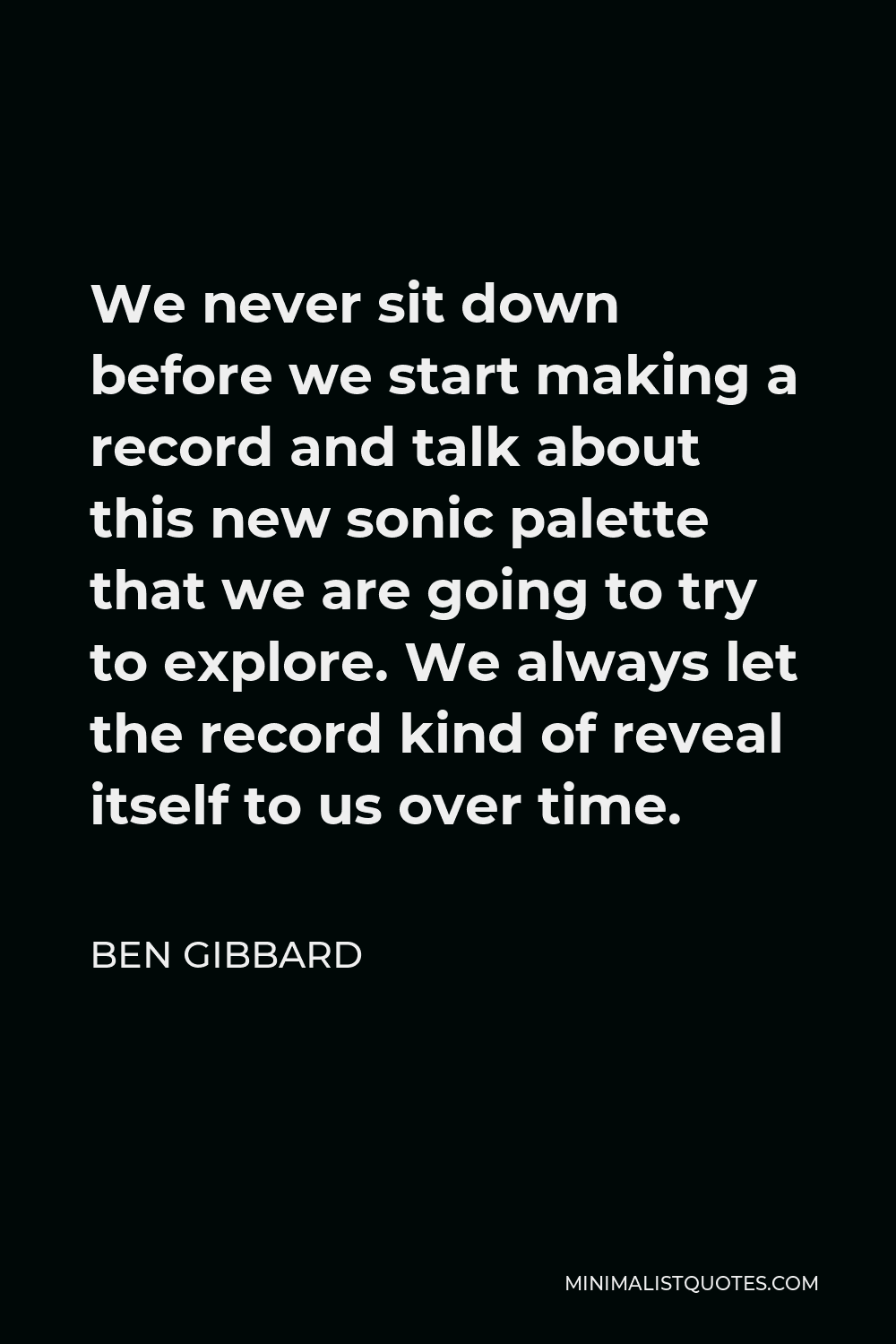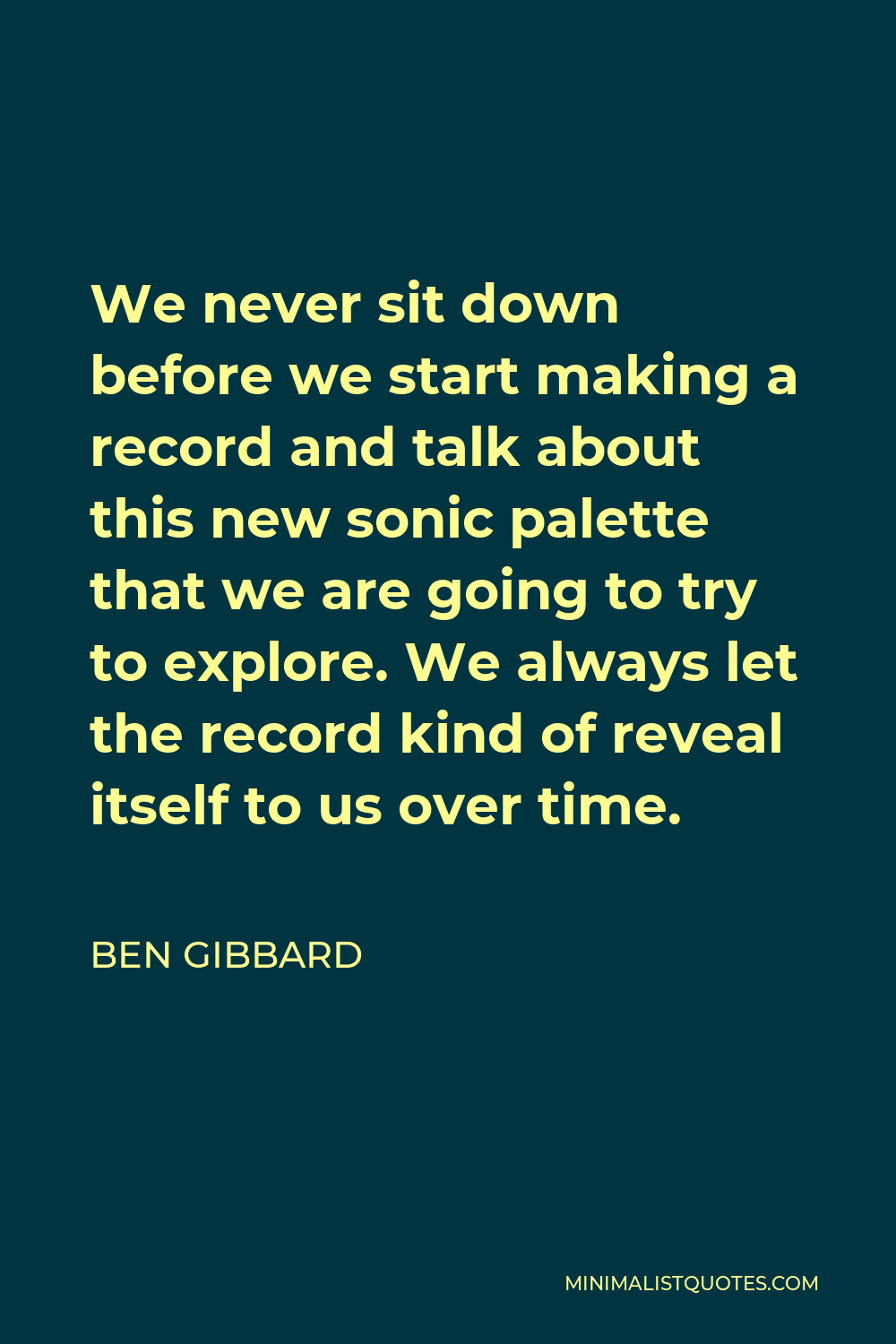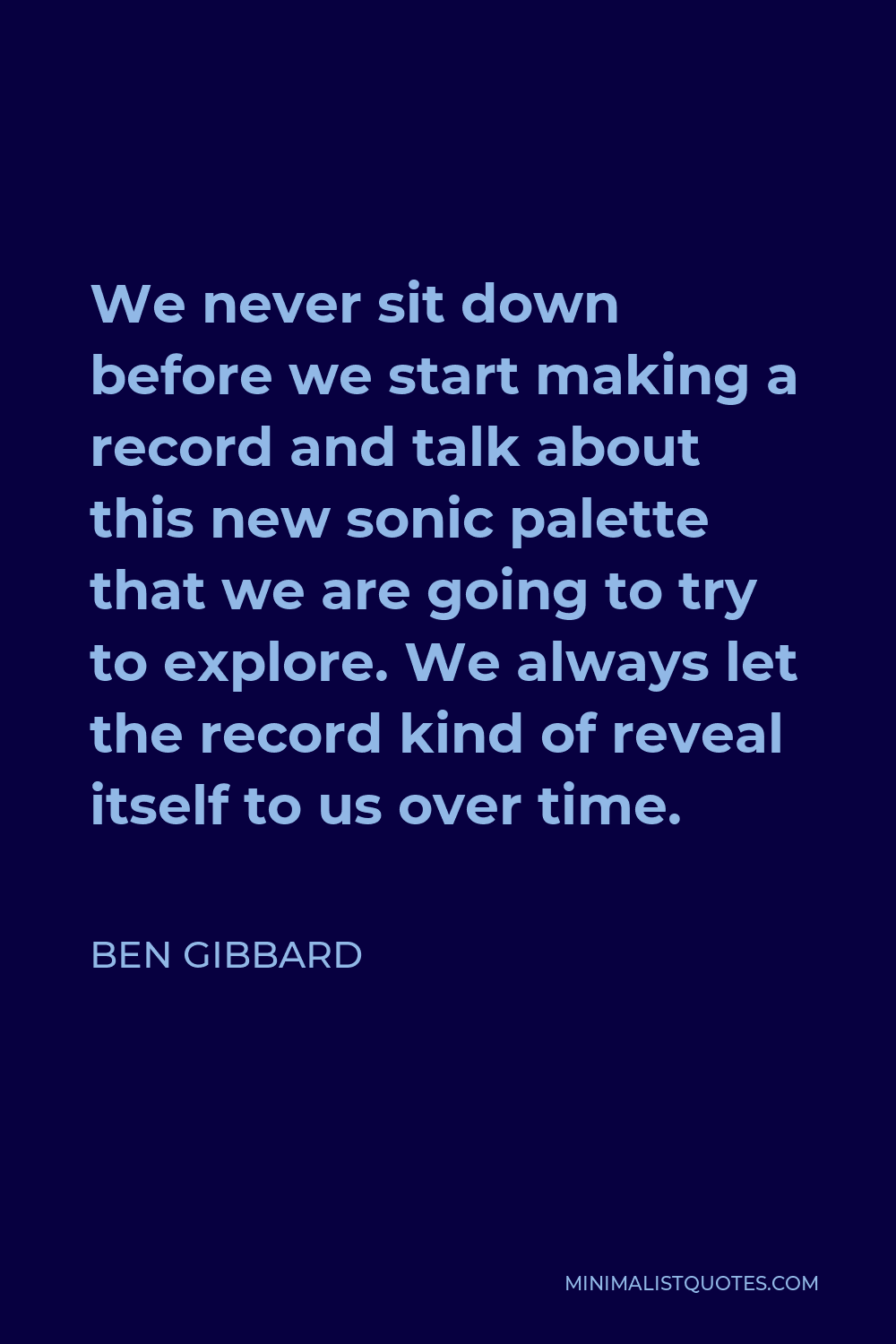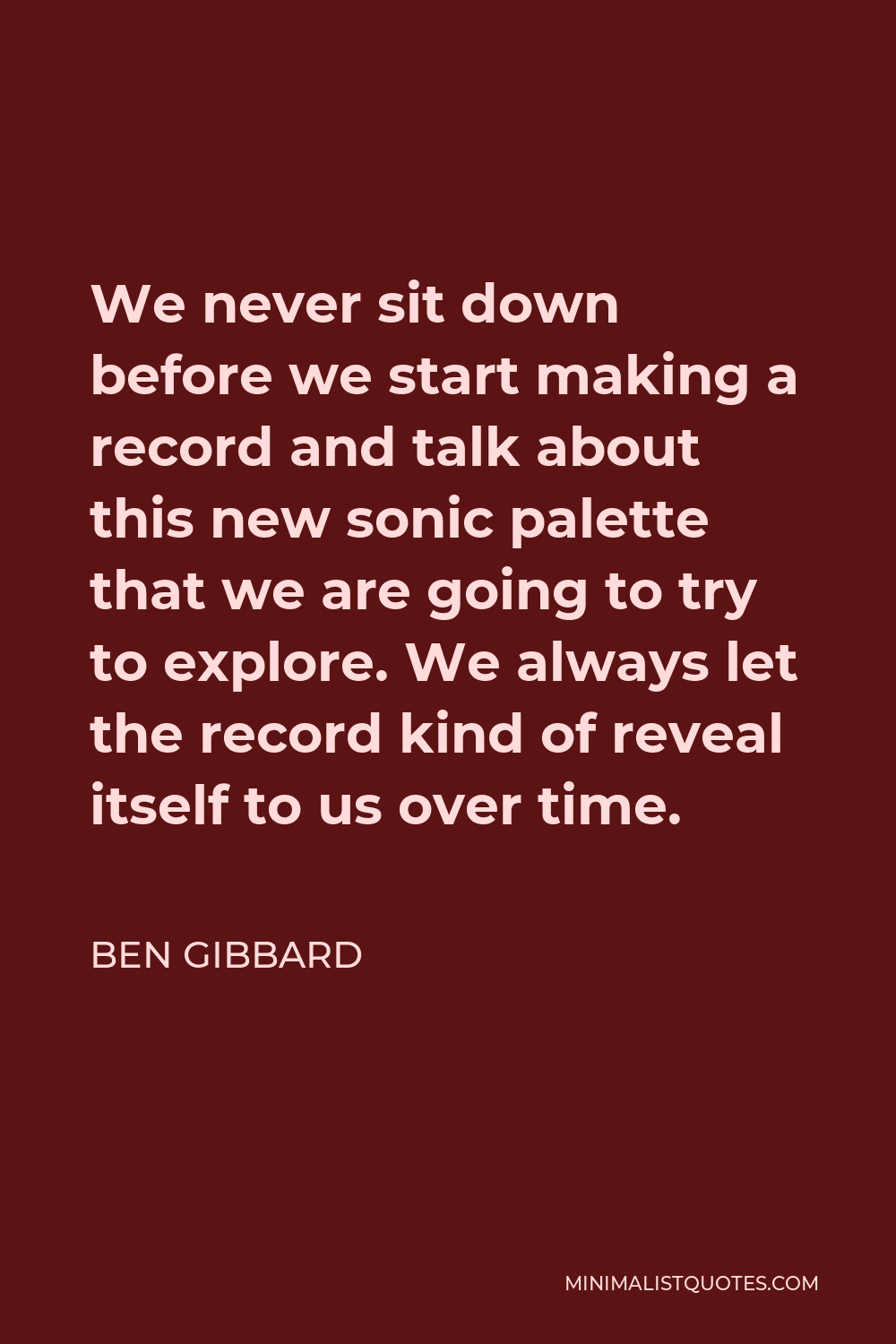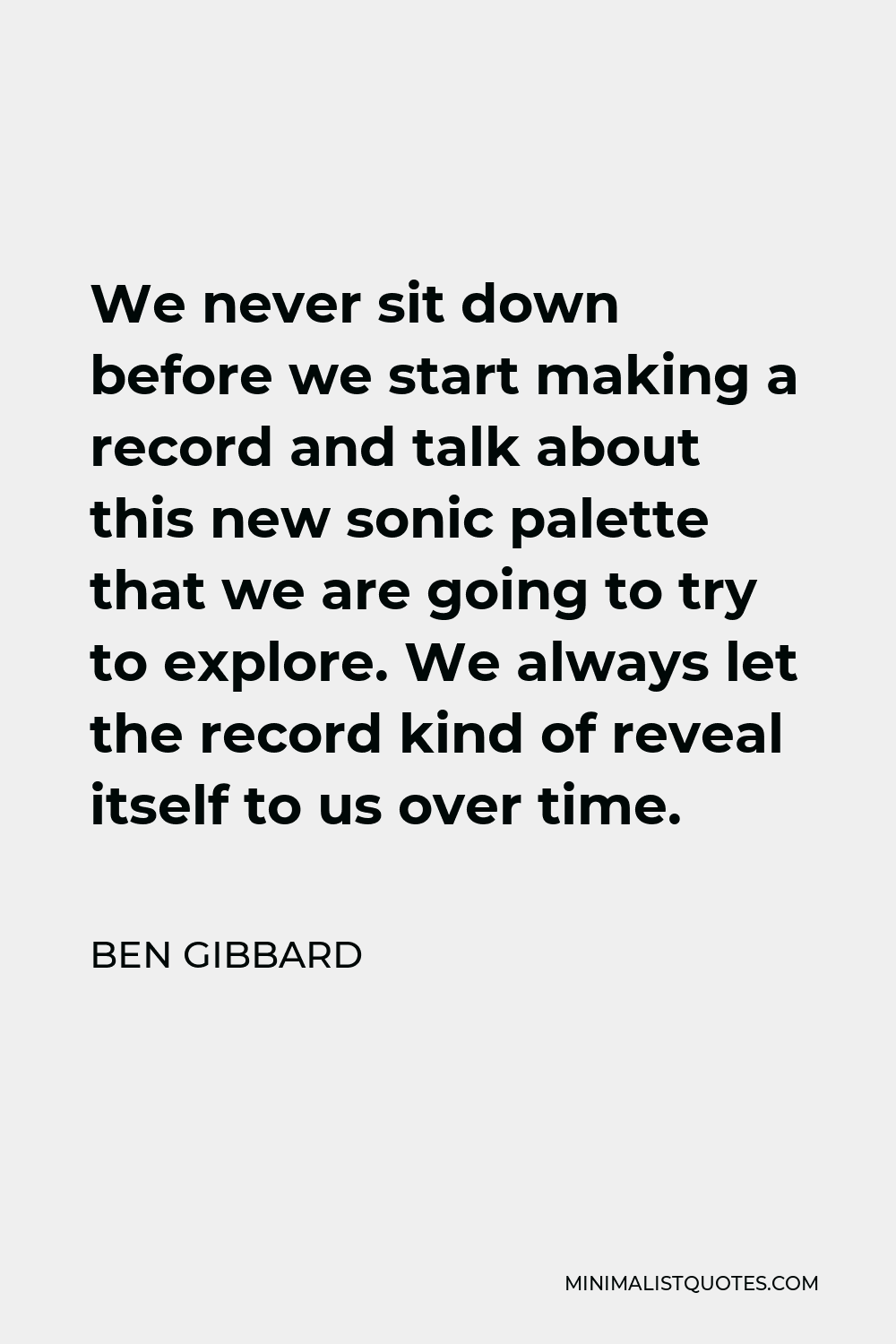There’s a cinematic quality that happens in my mind when I hear something that really lands. An album is just a journal of a life moving through time.
BEN GIBBARDWe never sit down before we start making a record and talk about this new sonic palette that we are going to try to explore. We always let the record kind of reveal itself to us over time.
More Ben Gibbard Quotes
-





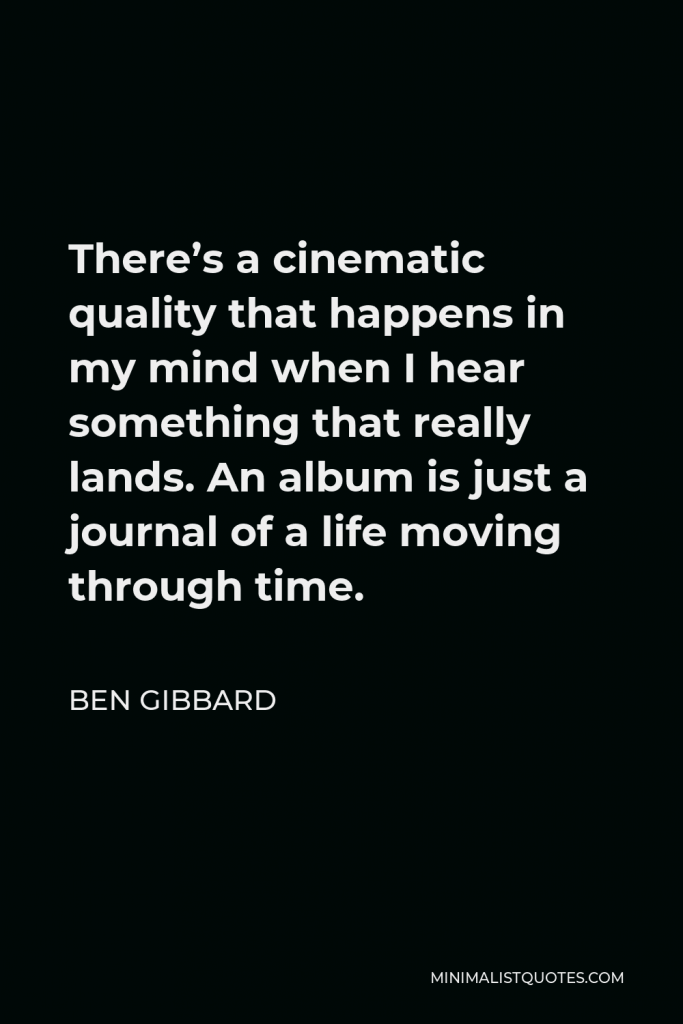

-





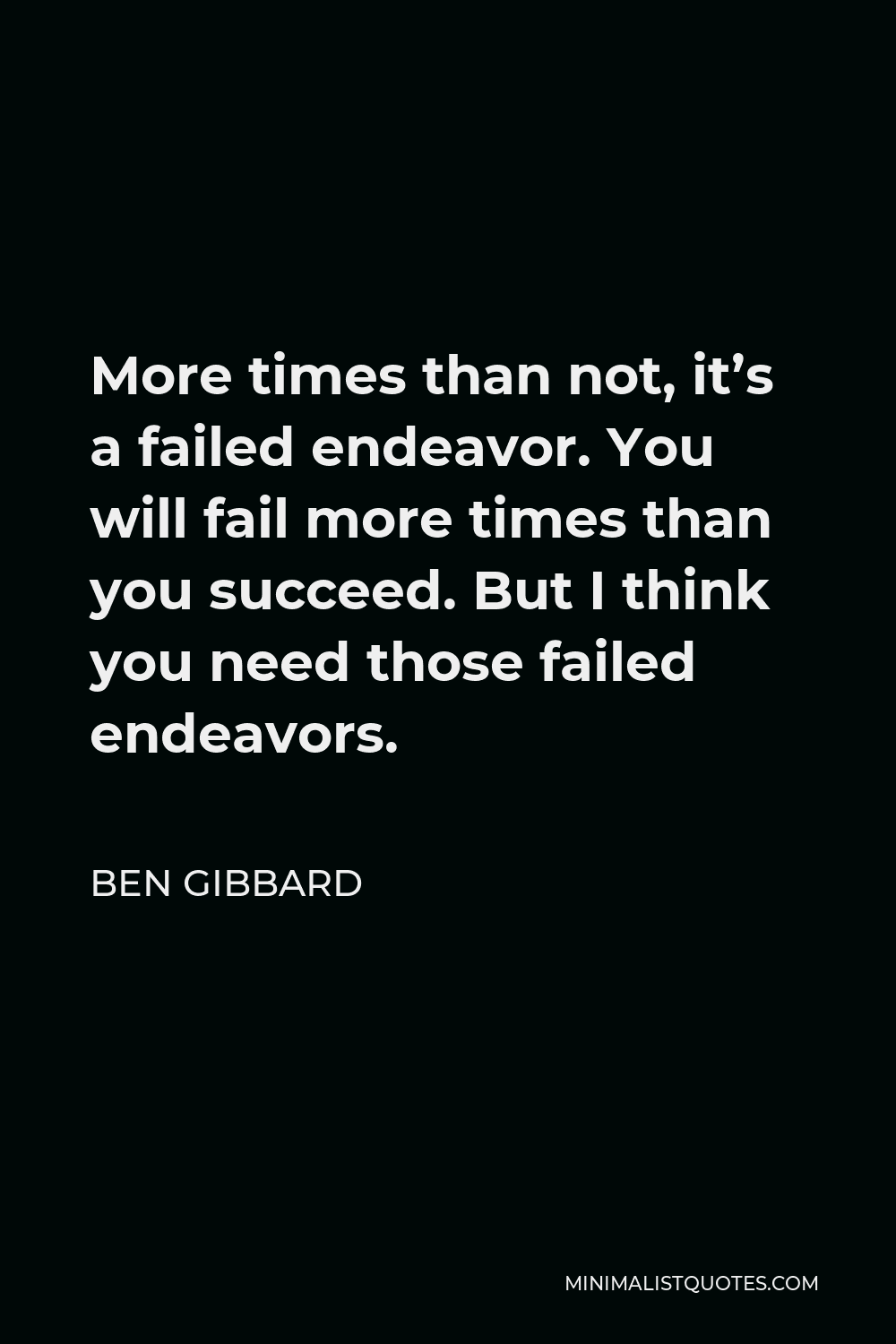
More times than not, it’s a failed endeavor. You will fail more times than you succeed. But I think you need those failed endeavors.
BEN GIBBARD -





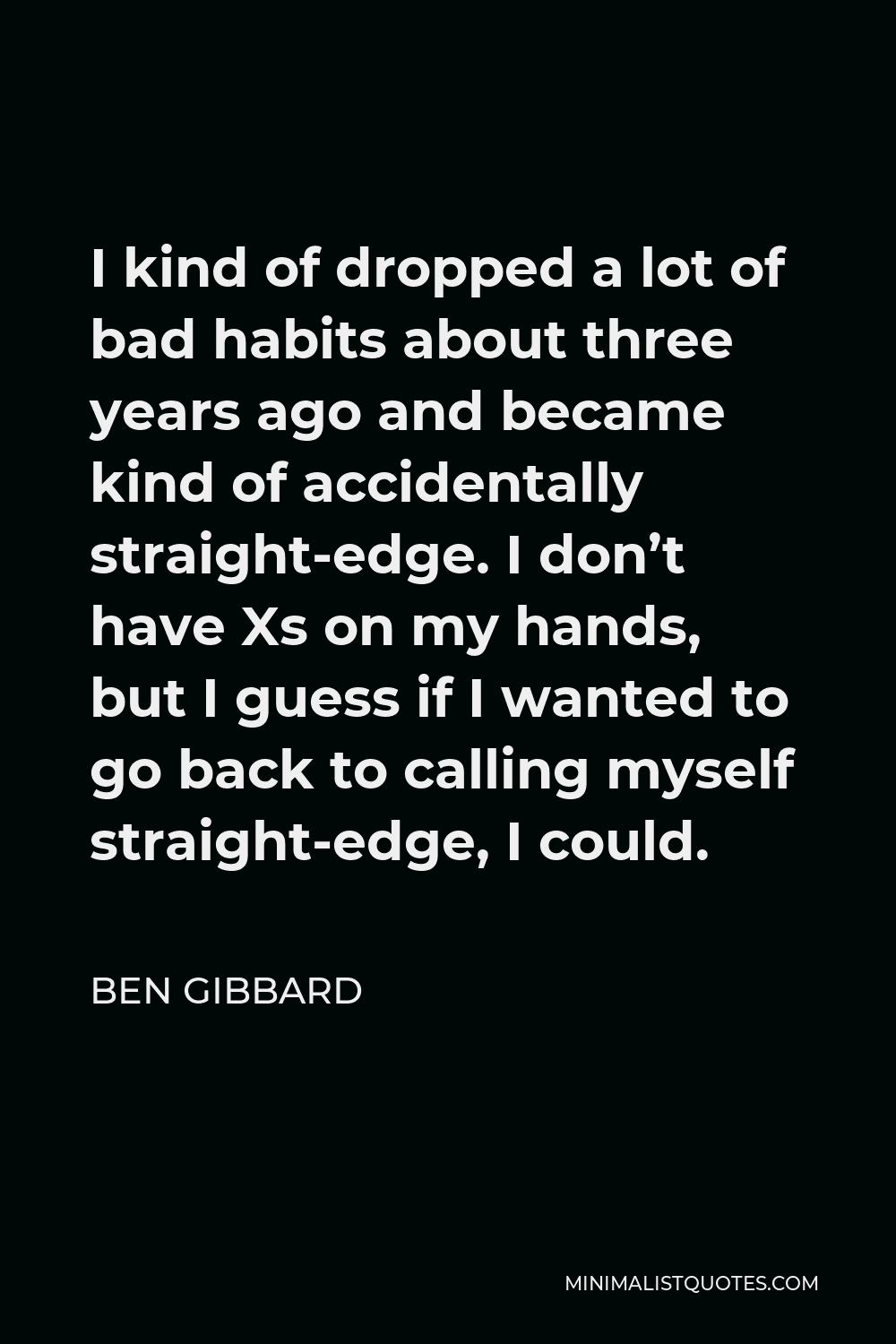
I kind of dropped a lot of bad habits about three years ago and became kind of accidentally straight-edge. I don’t have Xs on my hands, but I guess if I wanted to go back to calling myself straight-edge, I could.
BEN GIBBARD -





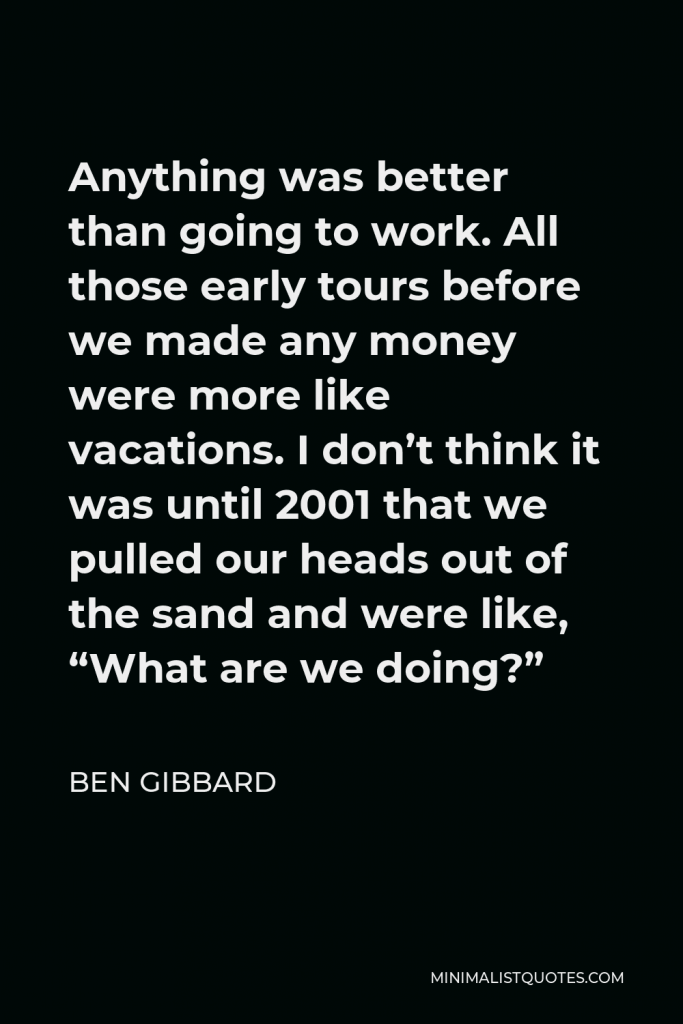

Anything was better than going to work. All those early tours before we made any money were more like vacations. I don’t think it was until 2001 that we pulled our heads out of the sand and were like, “What are we doing?”
BEN GIBBARD -





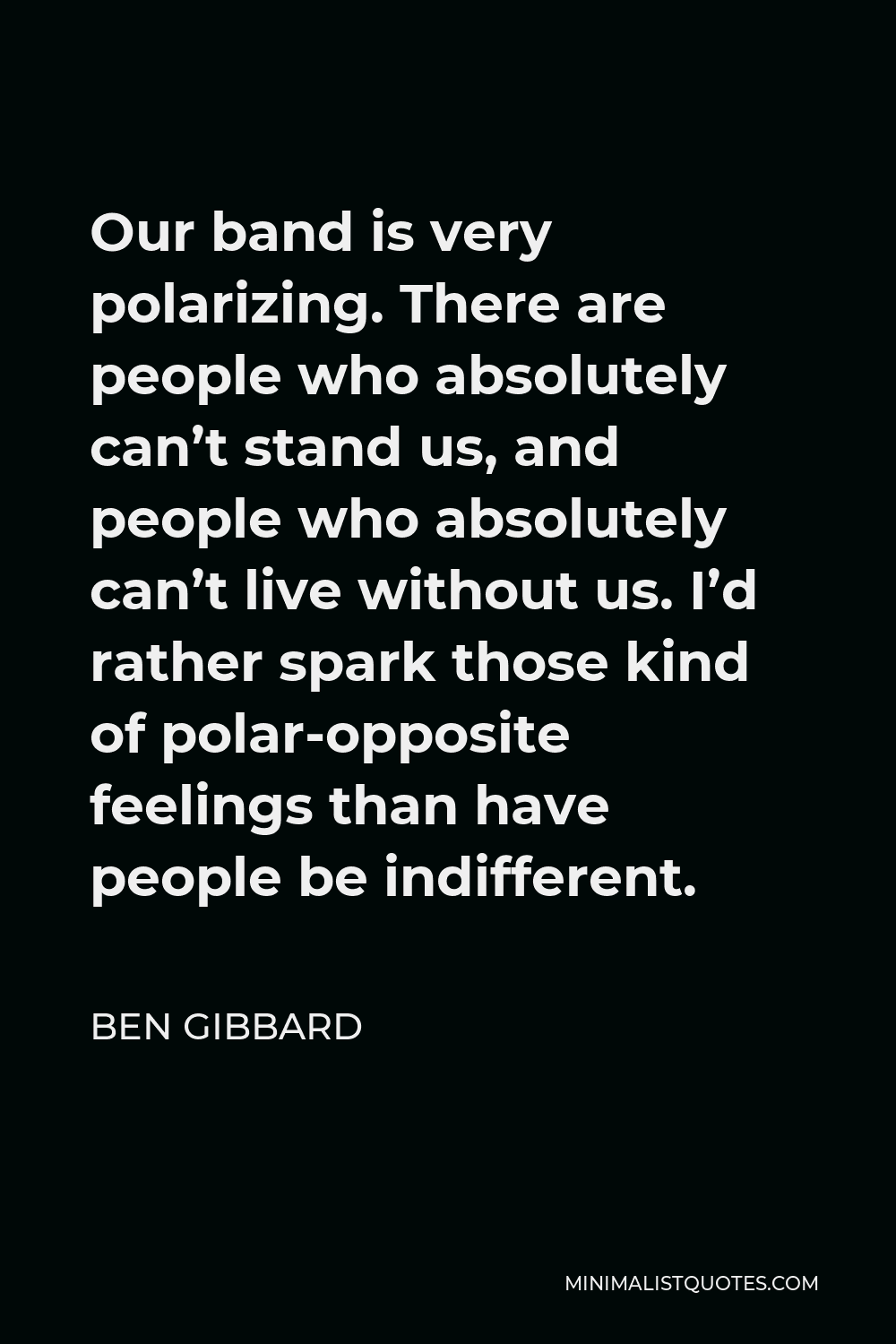
Our band is very polarizing. There are people who absolutely can’t stand us, and people who absolutely can’t live without us. I’d rather spark those kind of polar-opposite feelings than have people be indifferent.
BEN GIBBARD -





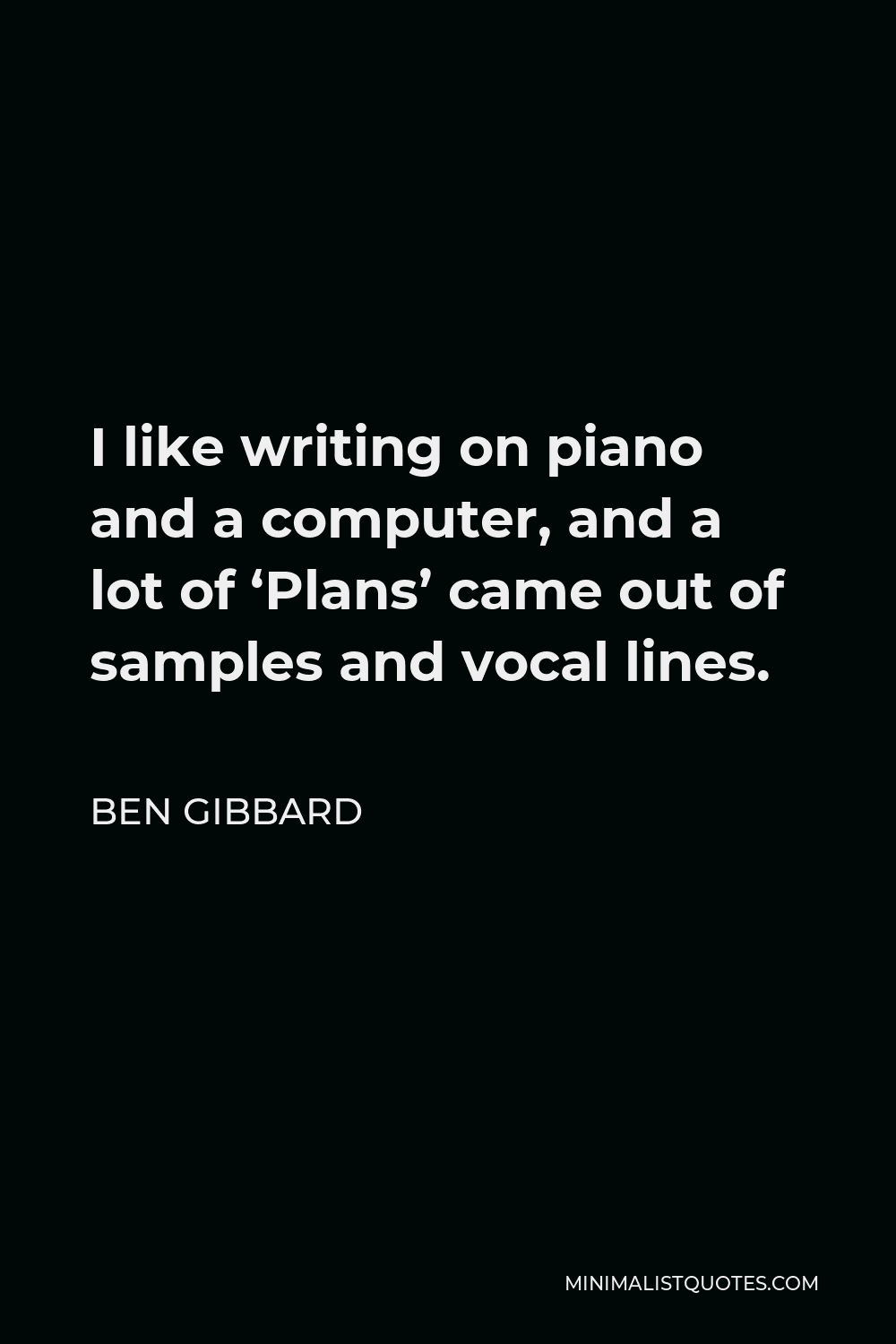
I like writing on piano and a computer, and a lot of ‘Plans’ came out of samples and vocal lines.
BEN GIBBARD -





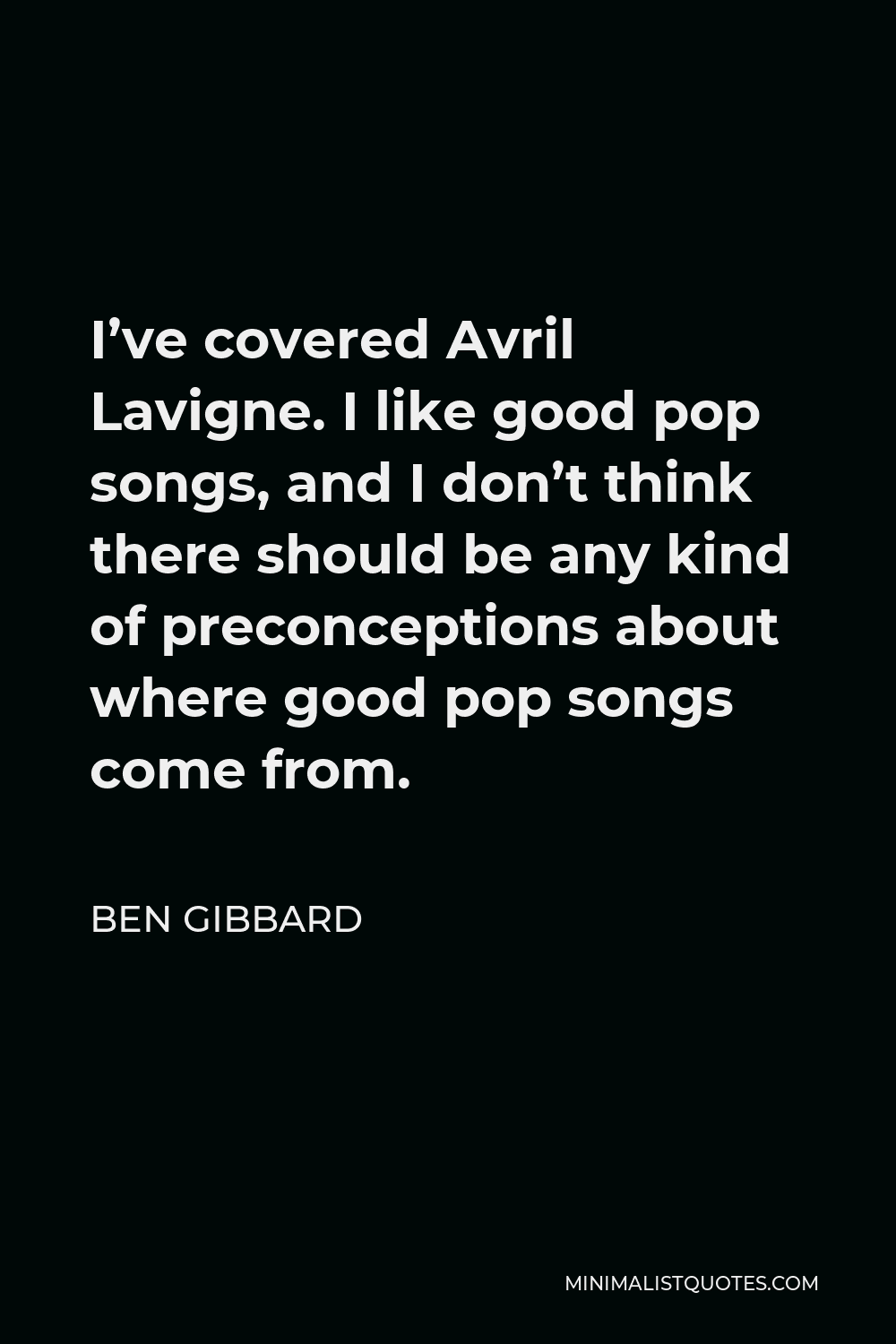
I’ve covered Avril Lavigne. I like good pop songs, and I don’t think there should be any kind of preconceptions about where good pop songs come from.
BEN GIBBARD -





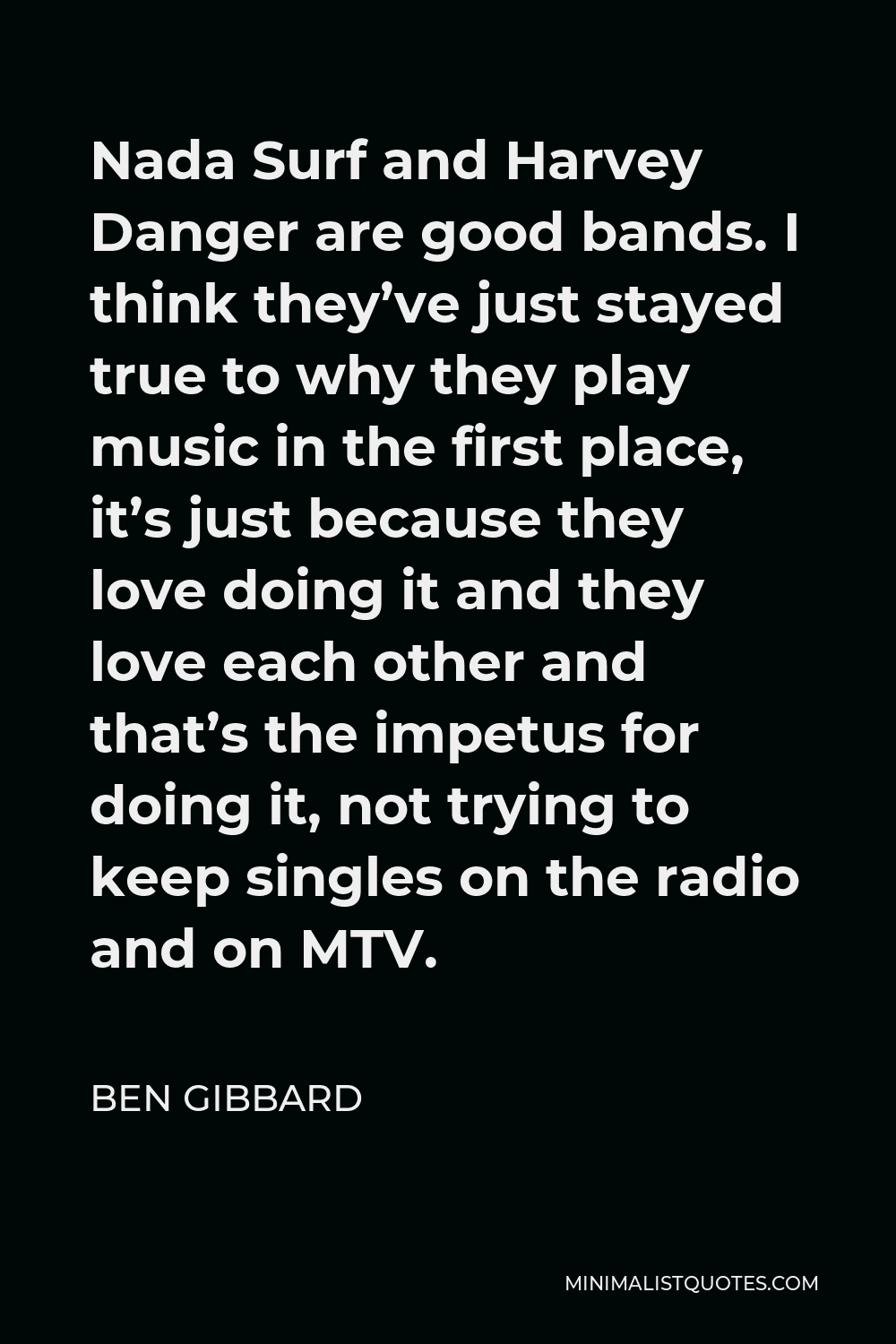
Nada Surf and Harvey Danger are good bands. I think they’ve just stayed true to why they play music in the first place, it’s just because they love doing it and they love each other and that’s the impetus for doing it, not trying to keep singles on the radio and on MTV.
BEN GIBBARD -





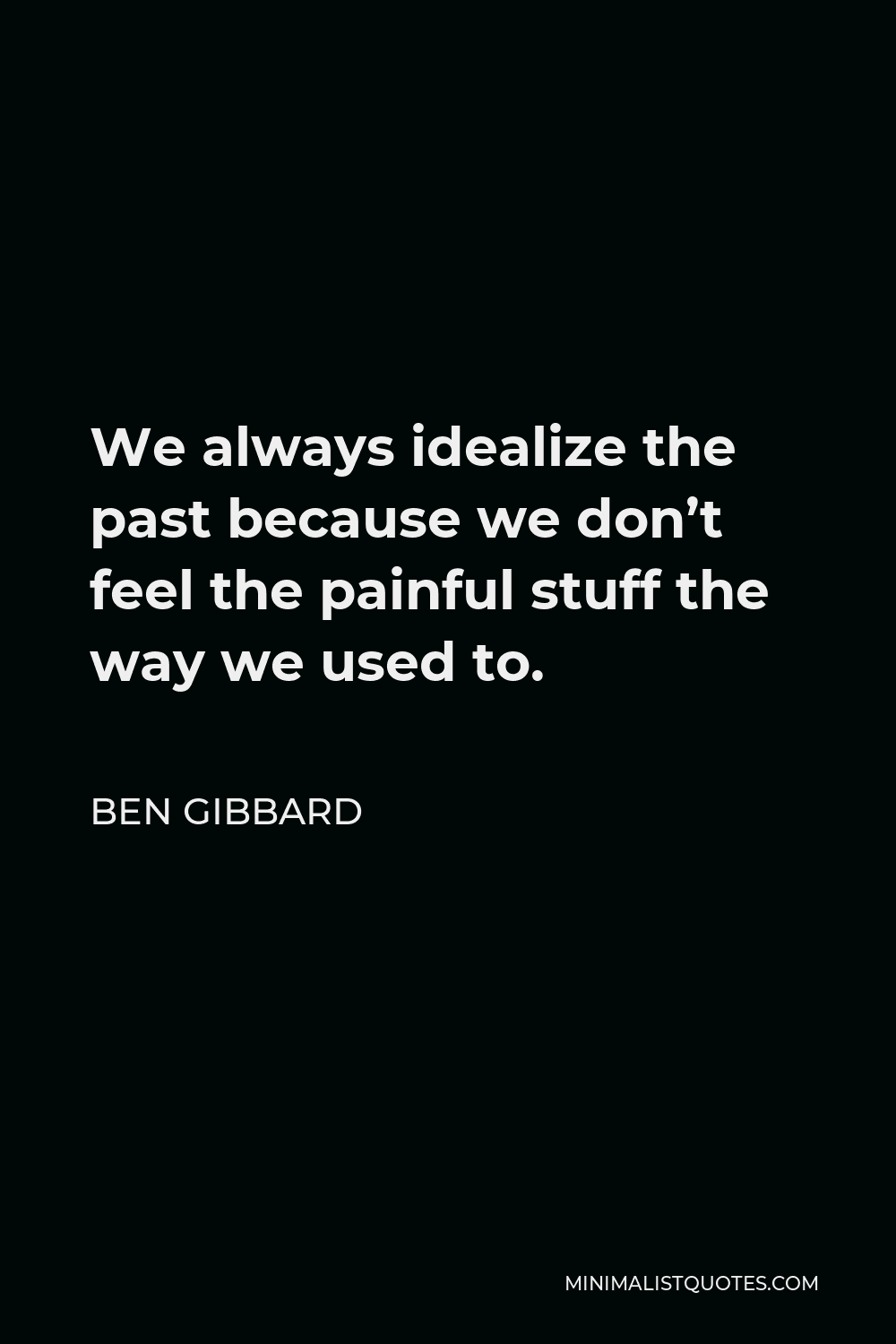
We always idealize the past because we don’t feel the painful stuff the way we used to.
BEN GIBBARD -





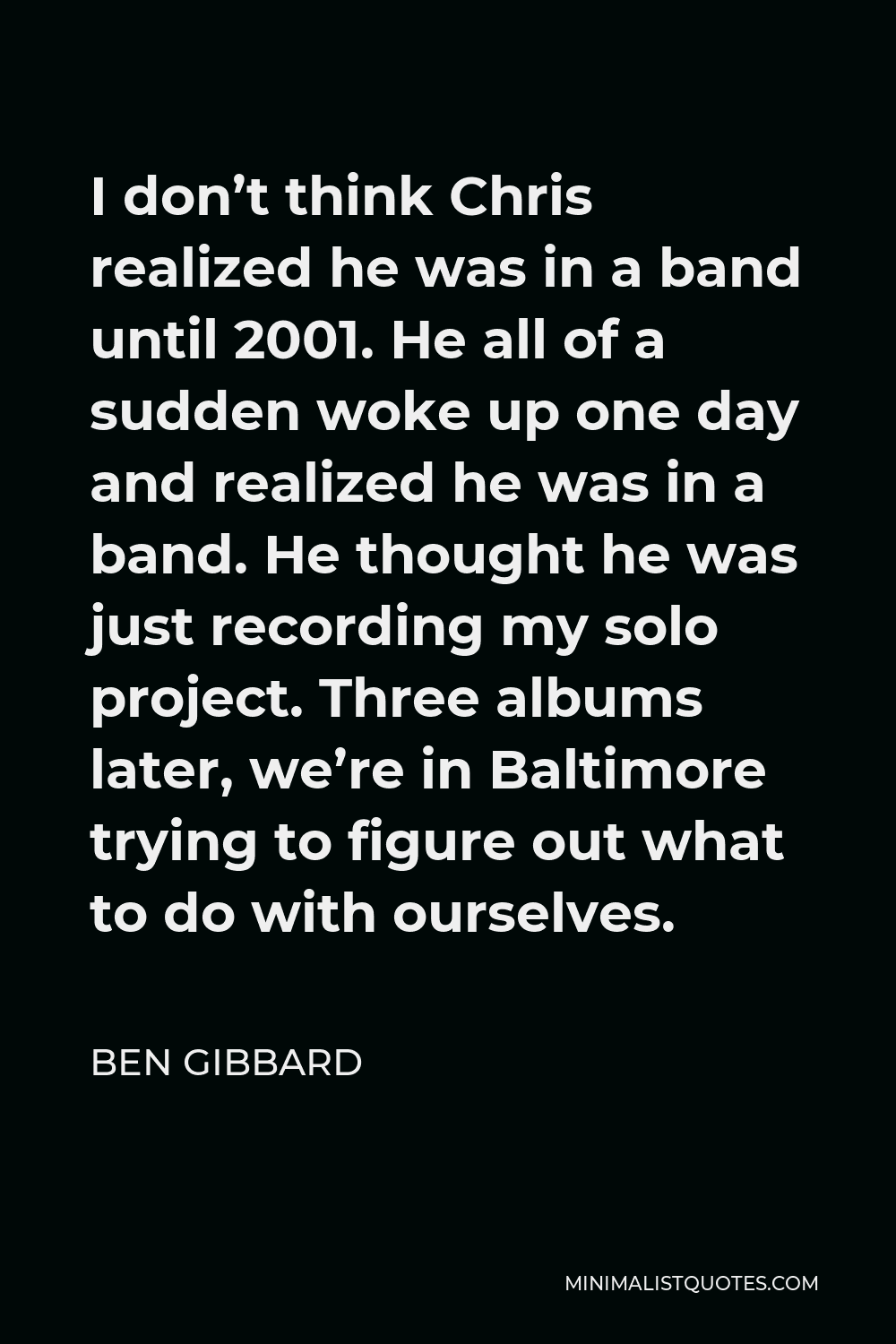
I don’t think Chris realized he was in a band until 2001. He all of a sudden woke up one day and realized he was in a band. He thought he was just recording my solo project. Three albums later, we’re in Baltimore trying to figure out what to do with ourselves.
BEN GIBBARD -





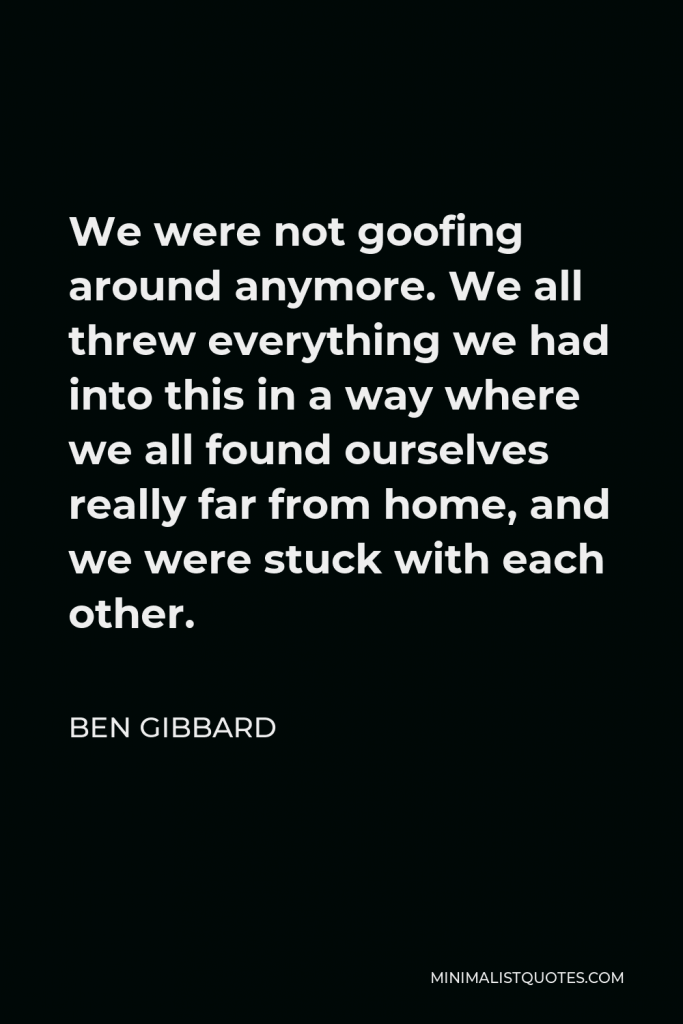

We were not goofing around anymore. We all threw everything we had into this in a way where we all found ourselves really far from home, and we were stuck with each other.
BEN GIBBARD -





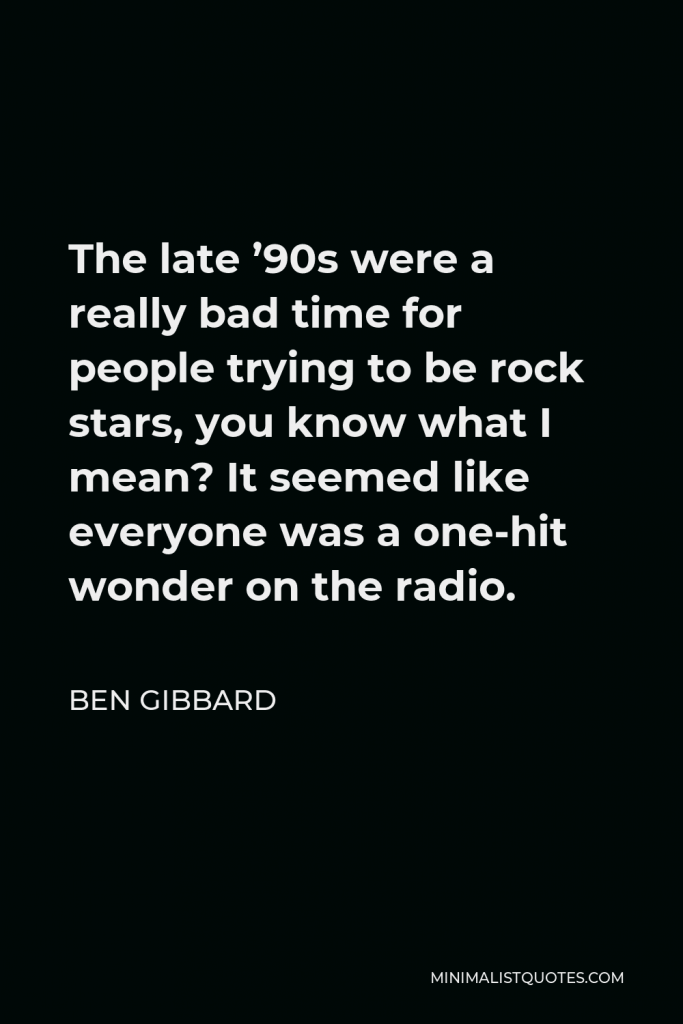

The late ’90s were a really bad time for people trying to be rock stars, you know what I mean? It seemed like everyone was a one-hit wonder on the radio.
BEN GIBBARD -





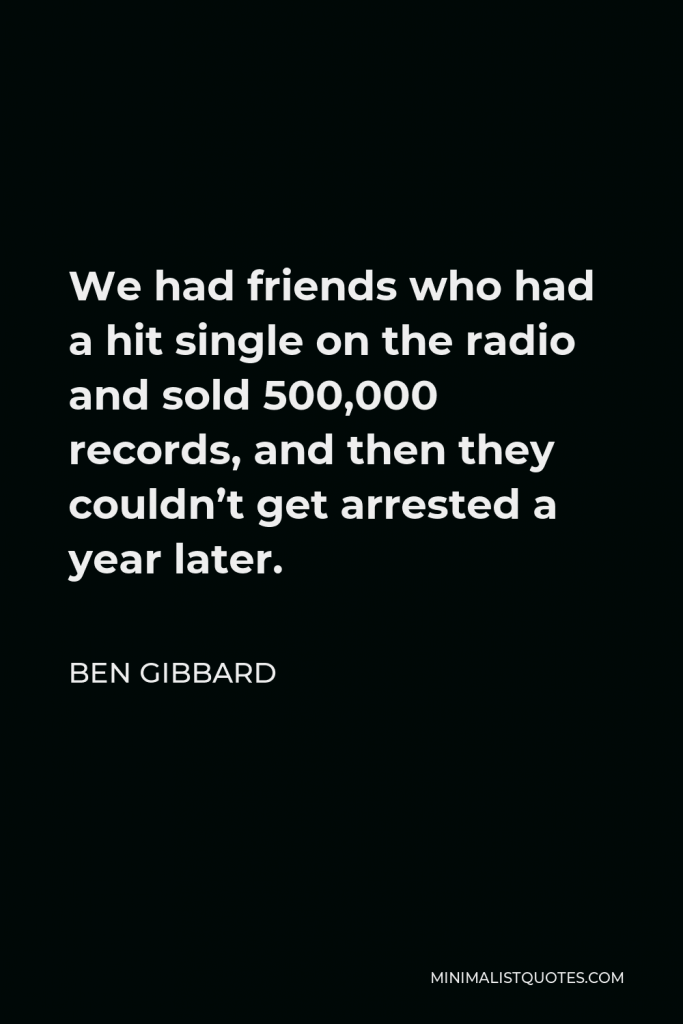

We had friends who had a hit single on the radio and sold 500,000 records, and then they couldn’t get arrested a year later.
BEN GIBBARD -







I’ve always had a soft spot for Phil Collins. He’s a great vocalist.
BEN GIBBARD -





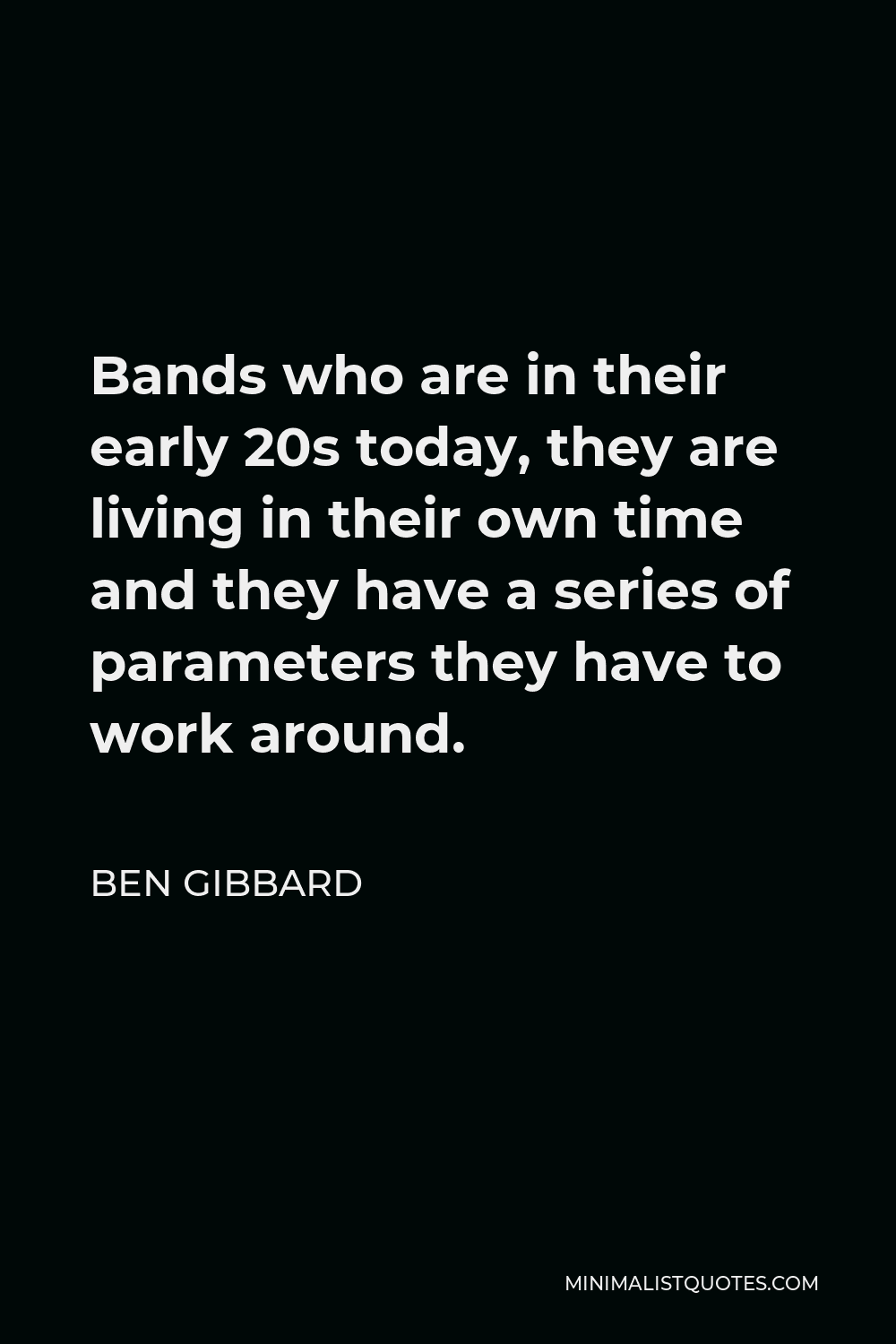
Bands who are in their early 20s today, they are living in their own time and they have a series of parameters they have to work around.
BEN GIBBARD -





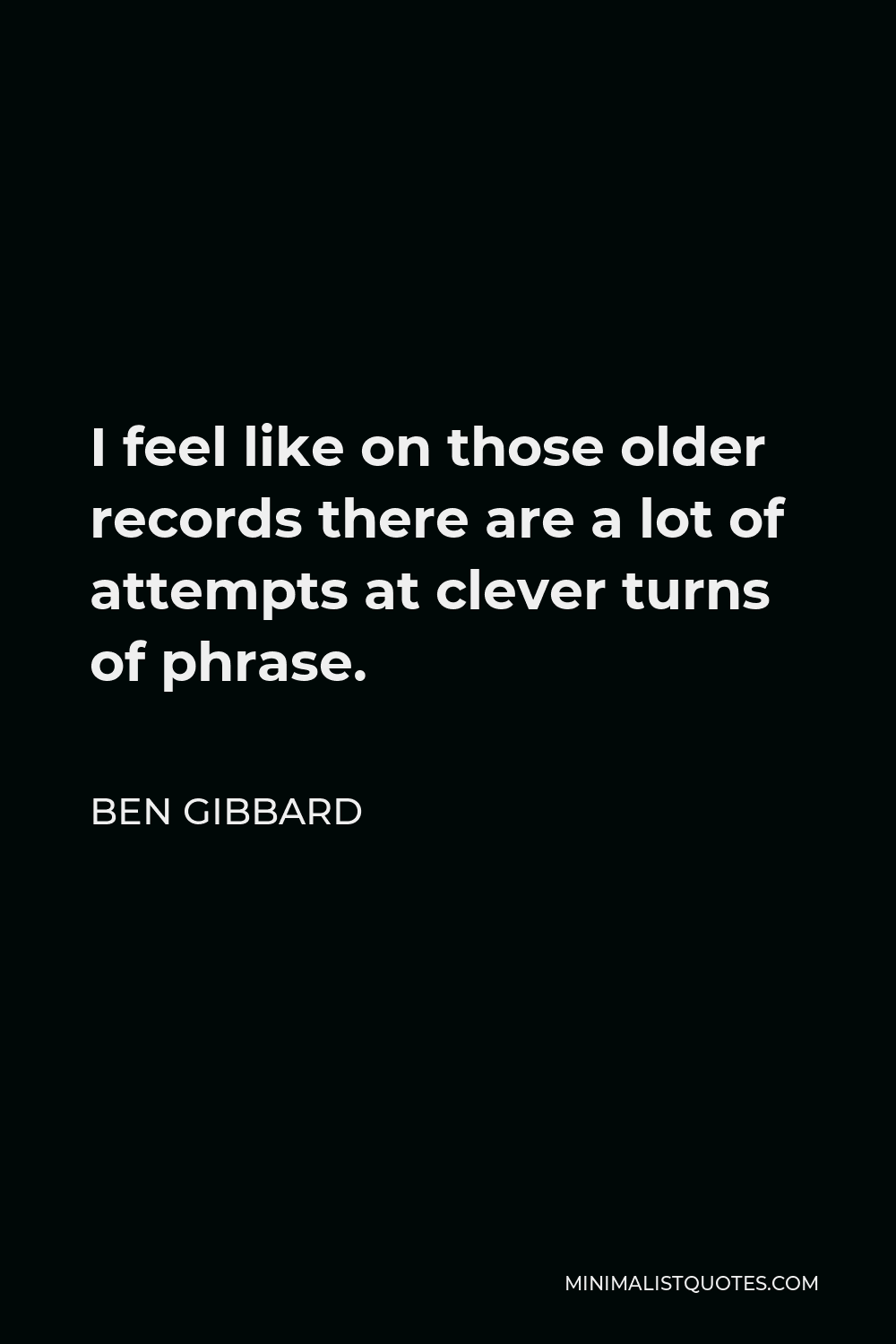
I feel like on those older records there are a lot of attempts at clever turns of phrase.
BEN GIBBARD
